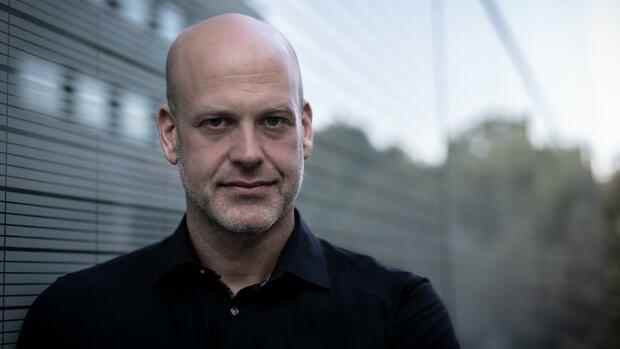The IT entrepreneur has filed an antitrust complaint against Microsoft.
(Photo: Nextcloud)
Dusseldorf Entrepreneur or activist: For Frank Karlitschek, 48, they cannot always be separated from each other. The software developer is the founder and head of Nextcloud, a provider of storage space and collaboration software in the cloud, which has a single-digit million dollar turnover. At the same time, he has been involved in the open source scene, which fights for open software and against the large IT corporations, since the mid-1990s.
Karlitschek provided the most recent example last week. Then the entrepreneur made public in the news magazine “Der Spiegel” that Nextcloud had filed a complaint against Microsoft with the Federal Cartel Office. The US group, so the argument goes, has “an overriding, cross-market importance for competition”.
If Karlitschek has his way, this is not only a problem for Nextcloud, which competes with Microsoft, but for society as a whole. “I don’t want to live in a world where five companies store all their data,” the software developer said in an interview with the Handelsblatt. “This centralization scares me.”
There is a need for competition and open standards – and that is only possible with open source code. “Software is political today,” he therefore postulates. For the developer, who describes himself as a software activist, it has been a topic since his studies when he got involved in a project aimed at making the Linux open operating system an alternative for Windows.
Top jobs of the day
Find the best jobs now and
be notified by email.
In the current case, Nextcloud first tried the EU Commission. “At first the discussions were promising, but over time they fell asleep,” reports Karlitschek. So the entrepreneur turned to the Federal Cartel Office. Since a change in the law at the turn of the year, technology groups have been able to control this more strictly.
Specifically, Karlitschek is bothered by the fact that Microsoft gives its own products a prominent place in Windows, which has a 75 percent market share in PCs. The Onedrive storage service is preinstalled and compatible with the user account that many create when installing the operating system. “The step to use third-party software is pretty big.”
Parallels to the “browser war”
Now all common operating systems offer a storage service with which users can save and share their data, whether iOS from Apple, Android from Google or Windows from Microsoft. It’s a matter of convenience and security. “It is clear that this functionality makes a lot of sense,” says Karlitschek. “The question is: does the user have a choice?”
Karlitschek sees a parallel to the 1990s, when Microsoft bundled its Windows operating system with the Internet Explorer browser and thus pushed its competitor Netscape Navigator out of the market. From the manager’s point of view, the subsequent antitrust proceedings also reveal a possible solution: A selection window could point users to alternative products.
The process could be lengthy and it remains to be seen whether there will be a concrete result. Nevertheless, Nextcloud provides welcome PR. The company with its 70 employees positions itself as a privacy-friendly alternative to the American corporations that dominate the market.
It relies on open source. Anyone can check, use and change the source code, and customers can also operate the software in their own data center and thus keep it under their own control.
These are important arguments where data protection is particularly important. A look at the customer file shows this: Customers include the governments in Germany, France and the Netherlands, and an introduction is planned in Sweden. Companies such as Siemens, ARD and ZDF as well as the German Red Cross also use the services of the German provider.
Nextcloud thus occupies a niche. For Karlitschek, however, this is a question of principle. Even during his studies, he was involved in the open source scene in order to establish Linux as an alternative to Windows. In 2010 he started the Owncloud project, from which Nextcloud later emerged.
It is important to reduce the dependency on the large IT groups in order to avoid disadvantages for data protection and the innovative capacity of the national economies. “I’m trying to make the world a better place through software,” he says today. Even with legal means.
More: EU countries rely on the German start-up Nextcloud
